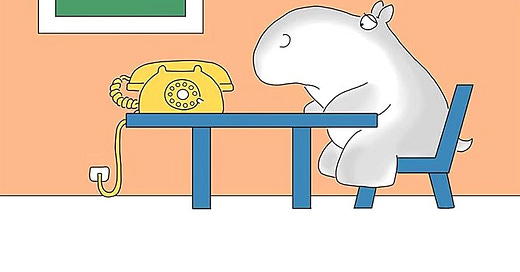Clifford, by Norman Bridwell, was rejected. Beatrix Potter’s The Tale of Peter Rabbit was rejected. Sandra Boynton’s Hippos Go Berserk! was rejected. Simms Taback’s There Was an Old Lady Who Swallowed a Fly was rejected.
“I GOT REJECTED 350 TIMES!” said comic book artist, creator of Spawn, and co-founder of Image Comics, Todd Macfarlane. “It took about 700 sample submissions and about 350 rejection letters before someone finally said, ‘Enough already, Todd. We’ll give you a job!’”
“Illustration is fraught with rejection,” said Anita Kunz on The Illustration Department Podcast. “When I first started, and I was sending my portfolio around, I was rejected by almost everybody. I mean, there’s just so much rejection. It gets easier [mentally] once you realize that it’s not about you.”
In August of 1972, the New York City Transit Authority debuted Massimo Vignelli’s iconic, flawlessly designed subway map. It took thirty years for him to finally find a flaw: New Yorkers. “They couldn’t relate the geography with the station, with the lines,” he said. “Otherwise, it’s perfect.”
I find comfort in these stories.
Whatever your goal is—publishing a book, creating a comic, illustrating for periodicals, or getting a New Yorker to their desired destination—you will receive some form of rejection. It is, therefore, important to know what rejection actually is: an inevitable step on any creative path.
It is also important, more so, to know what rejection isn’t: proof that what you do, as a creative, has no value.




